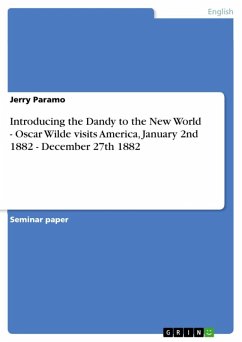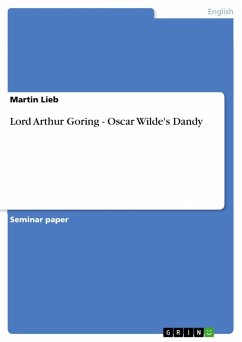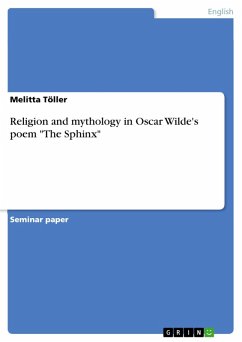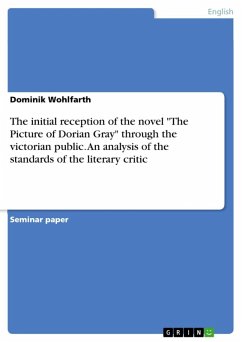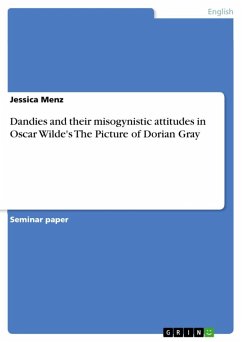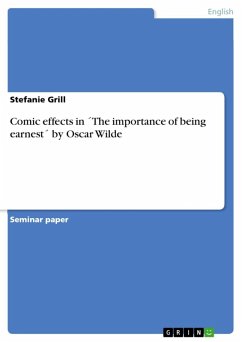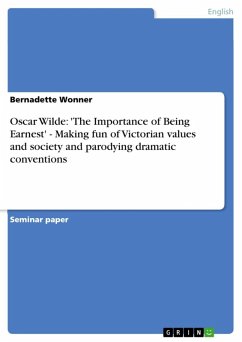Seminar paper from the year 2008 in the subject English Language and Literature Studies - Literature, grade: 1,00, University of Bamberg, course: The works and trials of Oscar Wilde, language: English, abstract: The concept of travel is as old as mankind itself. In the very beginning, of course, travelling did not simply take place for enjoyment or education, but to satisfy basic needs such as food and shelter. When Man finally began to settle in certain areas, travelling still meant going shorter or longer distances to obtain food, water and other valuable items. First on foot, then through domestication mainly by horse, and finally, in many shapes and forms, by a seemingly endless possibility of modern transportation, with the invention of the steam engine all the way to 21st century solar and electricity-powered vehicles. Although, when talking about the nineteenth century, one could only rely on ocean liners running on steam and the locomotive in order to travel great distances. Such inventions enabled mankind not only to become much better organized and grow together in an economic way, but they also allowed the people to take journeys to far-away places and travel abroad as only dignitaries and statesmen could do. However, the concept of travel was no longer focused on obtaining supplies or being away on business, it now was able to unfold in many ways more. People travelled for pleasure, were anxious to meet and experience new things, get to know exotic cultures, manners and traditions. The single most important discovery that prompted such desire not just to explore, but later also to travel, is regarded by most experts as the beginning of the modern age: Christopher Columbus sets out to sea in order to find a new passage route to India. Instead, it was America he had discovered in early October 1492. That is how far back we can trace the so-called New World. New it was indeed to the many generations of explorers, conquerors and other interested visitors, mainly being of European origin in the centuries to come; from the Spanish Conquistadores in their quest for wealth and power, to the Pilgrim Fathers, experiencing religious persecution and in search of their City upon a Hill , a reference often used in a very similar way even 300 years later by the former actor and President of the United States, Ronald Reagan.
Dieser Download kann aus rechtlichen Gründen nur mit Rechnungsadresse in A, B, BG, CY, CZ, D, DK, EW, E, FIN, F, GR, HR, H, IRL, I, LT, L, LR, M, NL, PL, P, R, S, SLO, SK ausgeliefert werden.

